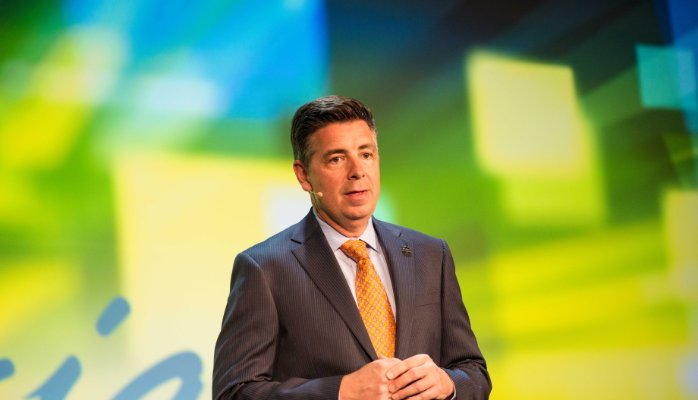The Asian American Hotel Owners (AAHOA) has long been the voice of the Asian-American hospitality community. And while it's a non-partisan group, if polled, the 16,000 members are more likely red than blue.
To be sure, AAHOA is political, with past keynote speakers at its annual convention including President George W. Bush, Gov. Rick Perry, Rick Santorum, President Bill Clinton and former DNC Chairman Howard Dean.
When, then, Donald Trump was elected the next President of the United States, we reached out to AAHOA to get its take. There is no better response than from AAHOA's current president and CEO, Chip Rogers—he himself a former politician. Rogers, a Republican, was first elected in 2002 to the Georgia General Assembly to the Georgia House of Representatives and in 2004 he was elected to the Georgia State Senate. Rogers was then chosen as the Senate Majority Leader of the U.S. state of Georgia in 2008 and again in 2010.
We posed three questions for Rogers about Trump. Here's what he said.
1. AAHOA has been known to be a right-leaning organization, having had many prominent Republicans as keynotes at past conferences. What does a Donald Trump presidency and Republican-controlled House and Senate mean for AAHOA and the broader hospitality industry?
Rogers: First, let me clear up a misperception: AAHOA is non-partisan in every way. We support elected officials who support small business. While we have had President George W. Bush speak as a keynote, we have also had President Bill Clinton, former DNC Chairmen Howard Dean and Terry McAuliffe, as well as General Colin Powell. With respect to President-elect Trump, we are understandably excited about a hotel owner becoming President for the first time in our history. President-elect Trump has pledged to reduce regulation and lower taxes; everyone concerned with advancing free markets should share our excitement. Finally, President-elect Trump understands first-hand the delicate balance between organized labor and private sector businesses. This understanding from the Executive branch has been sorely missed for quite some time.

2. Immigration was a hot-button issue during the campaign with Trump a proponent of deportation in some form of those here illegally. Whether lawful or not, many undocumented immigrants do work in the hospitality industry. What could possible immigration reform mean to the hospitality industry?
Rogers: It is almost impossible to know what reform would mean without knowing the details of the reform. Our members are quite mindful of current law, take all necessary steps to comply and will continue to do so. Among workforce issues, our members have expressed much greater concerns over the “joint employer” decision from the NLRB and the new overtime rule.
3. Trump has also shown his hand when it comes to trade, having earlier this year floated the idea of a 45-percent tax on Chinese imports if elected president. The hospitality industry is reliant on cheap manufacturing and goods from China. How could this impact the industry if a tariff measure like this is passed?
Rogers: It is difficult to comment on specific policy proposals without exact details. Mr. Trump’s written position statements reference tariffs being applied against those nations violating existing trade agreements. However, what we are eager to support are his free-market proposals, which include reducing regulation, lowering taxes and, most importantly, bringing reasonable balance back to the relationship between organized labor and the millions of American entrepreneurs trying to build businesses and create jobs.
According to its website: In 2016, AAHOA celebrated its 27th anniversary and is currently one of hospitality industry’s most respected and influential organizations. AAHOA represents more than 16,000 members nationwide, who own more than 23,000 properties, amounting to nearly 50 percent of all hotels in the United States. AAHOA members employ over 700,000 workers across America, and account for nearly $10 billion in annual payroll.
